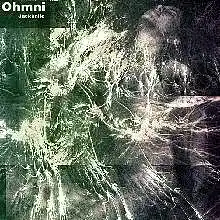License $0.00
Free download
Creative Commons license
Commercial uses of this track are NOT allowed.
Adaptations of this track are NOT allowed to be shared.
You must attribute the work in the manner specified by the artist.

music audio energy sounds resonance vibrations breakbeat techno trance tribal resonance electronica fusion house experimental trip hop old school new school aci
Song Info
Genre
Charts
Peak #466
Peak in subgenre #7
Author
ohmni
Rights
ohmni
Uploaded
June 05, 2005
Track Files
MP3
MP3 2.2 MB • 128 kbps • 2:24
Story behind the song
testing new ground.
digital system is one that uses discrete values rather than a continuous spectrum of values: compare analog. The word comes from the same source as the word digit: the Latin word for finger (counting on the fingers) as these are used for discrete counting.
The distinction digital versus analog can refer to data storage and transfer, the internal working of an instrument, and the kind of display.
When data is transmitted using analog methods, a certain amount of noise enters into the signal. This can have a myriad of different causes: data transmitted by radio may be received badly, suffer interference from other radio sources, or pick up background radio noise from the rest of the universe. Electric pulses being sent down wires are attenuated by the resistance of the wire, and dispersed by its capacitance, and heat variations can increase or reduce these effects. Whilst digital transmissions are also degraded, any slight variations can be safely ignored. Any variance could provide a great amount of distortion in an analog signal. In a digital signal, these variances can be overcome, as any signal close to a particular value will be interpreted as that value.
Digital noise
Tribal, as a noun, refers to a type of design or image that has been influenced by tribes of indigenous peoples. Often a tribal has reference to a tattoo, due to the fact that "tribal" tattoo designs are fairly popular currently.
Tribal, as an adjective, pertains to tribes.
Viewed historically or developmentally, a tribe consists of a social formation existing before the development of, or outside of, states. Many people use the term to refer to any non-Western or indigenous society. Some social scientists use the term to refer to societies organized largely on the basis of kinship, especially corporate descent groups (see clan and lineage). In some countries, such as the United States of America and India, tribes are Indigenous peoples that have been granted legal recognition and limited autonomy by the state.
Considerable debate takes place over how best to characterize tribes. Some of this debate stems from perceived differences between pre-state tribes and contemporary tribes; some of this debate reflects more general controversy over cultural evolution and colonialism. In the popular imagination, tribes reflect a way of life that predates, and is more " natural", than that in modern states. Tribes also privilege primordial social ties, are clearly bounded, homogeneous, parochial, and stable. Thus, many believed that tribes organize links between families (including clans and lineages), and provide them with a social and ideological basis for solidarity that is in some way more limited than that of an "ethnic group" or of a "nation". Anthropological and ethnohistorical research has challenged all of these notions.
In his 1972 study, The Notion of the Tribe, Morton Fried provided numerous examples of tribes the members of which spoke different languages and practised different rituals, or that shared languages and rituals with members of other tribes. Similarly, he provided examples of tribes where people followed different political leaders, or followed the same leaders as members of other tribes. He concluded that tribes in general are characterized by fluid boundaries and heterogeneity, are not parochial, and are dynamic.
Archeologists continue to explore the development of pre-state tribes. Current research suggests that tribal structures constituted one type of adaptation to situations providing plentiful yet unpredictable resources. Such structures proved flexible enough to co-ordinate production and distribution of food in times of scarcity, without limiting or constraining people during times of surplus.
Fried, however, proposed that most contemporary tribes do not have their origin in pre-state tribes, but rather in pre-state bands. Such "secondary" tribes, he suggested, actually came about as modern
Lyrics
funking up a storm
Song Likes
